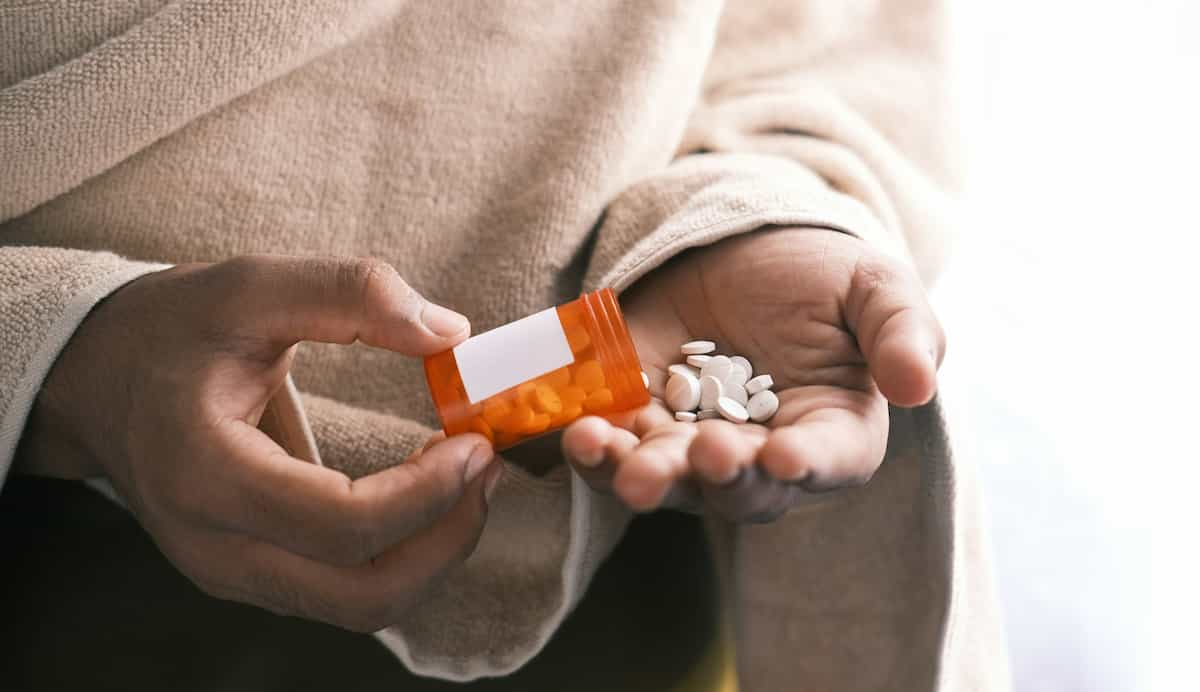Substance abuse disorders are complex conditions that affect individuals from all walks of life.
What is a substance abuse disorder?
A substance abuse disorder refers to the harmful use of substances such as drugs or alcohol, leading to significant impairment or distress.
This condition can affect various aspects of life, including physical health, mental well-being, relationships, and daily functioning.
Substance abuse disorders range from mild to severe and often require professional intervention for effective management.
Common types of substances involved
Substance abuse disorders can involve a variety of substances, each with its unique effects and risks.
Some commonly abused substances include:
- Alcohol: A widely available substance that can lead to dependence and health complications when consumed excessively.
- Opioids: Prescription painkillers like oxycodone, as well as illegal drugs like heroin.
- Stimulants: Substances such as cocaine, amphetamines, and methamphetamine.
- Cannabis: While legal in some areas, excessive or prolonged use can lead to dependence.
- Hallucinogens: Drugs like LSD and psilocybin that alter perception and mood.
- Inhalants: Substances like glue or aerosols, often abused by inhaling their vapours.
Causes and risk factors
Several factors can contribute to the development of substance abuse disorders, often in combination.
Genetic and biological influences
Research indicates that genetics can play a significant role in determining susceptibility to substance abuse.
Individuals with a family history of addiction may have a higher risk of developing similar issues.
Biological factors, such as changes in brain chemistry, can also increase the likelihood of dependence.
Environmental factors
Environmental influences, such as peer pressure, stress, and exposure to substance use at an early age, are major contributors.
Growing up in an unstable or abusive household can also elevate the risk of substance abuse.
Co-occurring mental health disorders
Mental health conditions like depression, anxiety, and post-traumatic stress disorder (PTSD) are often linked with substance abuse disorders.
These conditions can exacerbate one another, creating a cycle that is challenging to break.
Symptoms and diagnosis
Recognising the symptoms of a substance abuse disorder is essential for early intervention.
Behavioural signs
- Neglecting responsibilities at work, school, or home.
- Engaging in risky behaviours, such as driving under the influence.
- Experiencing strained relationships due to substance use.
- Prioritising substance use over other activities or interests.
Physical symptoms
- Sudden weight changes, either gain or loss.
- Bloodshot eyes or dilated pupils.
- Frequent health issues, such as headaches or nausea.
- Changes in sleeping patterns, such as insomnia or excessive sleep.
Diagnostic criteria
Healthcare professionals use diagnostic tools like the Diagnostic and Statistical Manual of Mental Disorders (DSM-5) to identify substance abuse disorders.
Diagnosis often involves assessing the frequency, duration, and impact of substance use on an individual’s life.
Treatment options
Substance abuse disorders are treatable conditions, and a variety of methods can support recovery.
Detoxification and withdrawal management
The first step in many treatment plans is detoxification, where the body eliminates harmful substances.
This process is often accompanied by withdrawal symptoms, which can be managed with medical supervision and medication.
Behavioural therapies
Cognitive-behavioural therapy (CBT) and motivational interviewing are common approaches used to help individuals change harmful patterns of thought and behaviour.
These therapies focus on identifying triggers and developing healthier coping mechanisms.
Medication-assisted treatment (MAT)
Medications like methadone, buprenorphine, and naltrexone can support recovery by reducing cravings and withdrawal symptoms.
MAT is often used in combination with behavioural therapies for a more comprehensive approach.
Support groups and rehabilitation
Programs like Alcoholics Anonymous (AA) and Narcotics Anonymous (NA) offer peer support and a sense of community.
Residential rehabilitation centres provide structured environments for intensive treatment and recovery.
Prevention and coping strategies
Preventing substance abuse disorders involves addressing risk factors and promoting protective measures.
Preventive measures
- Educating individuals, particularly young people, about the risks of substance use.
- Encouraging open communication within families to discuss substance-related issues.
- Building strong support networks to reduce feelings of isolation.
Coping mechanisms
For those in recovery, effective coping strategies can make a significant difference.
- Practising mindfulness and stress management techniques, such as yoga or meditation.
- Maintaining a balanced lifestyle with regular exercise, healthy eating, and adequate sleep.
- Setting realistic goals and celebrating small milestones in recovery.
Innovative therapies and emerging treatments
Advancements in treatment methods are providing new hope for individuals with substance abuse disorders.
Technology and telemedicine
Telemedicine platforms are making therapy more accessible, particularly for those in remote areas.
Apps and online resources can offer 24/7 support and tracking tools for recovery progress.
Novel treatment approaches
Emerging therapies, such as psychedelic-assisted therapy, are being studied for their potential to treat substance abuse disorders.
Virtual reality (VR) exposure therapy is another innovative approach, helping individuals confront triggers in a controlled environment.
The role of nutrition and exercise in recovery
A holistic approach to recovery includes attention to physical health.
How diet influences healing
Proper nutrition can help repair the damage caused by substance abuse and support overall well-being.
A diet rich in fruits, vegetables, lean proteins, and whole grains is recommended.
Benefits of physical activity
Exercise releases endorphins, which can improve mood and reduce cravings.
Activities like walking, swimming, or yoga can also provide a sense of routine and purpose.
Personal stories: journeys to recovery
Hearing from individuals who have overcome substance abuse disorders can inspire and motivate others.
First-hand accounts
Many individuals share their experiences of hitting rock bottom and finding the strength to seek help.
These stories highlight the importance of resilience and support systems.
Lessons learned
Common themes from recovery journeys include the value of self-awareness, perseverance, and seeking professional assistance.
Sharing these lessons can help reduce the stigma surrounding substance abuse disorders and encourage others to take the first step towards recovery.
Understanding the stigma surrounding substance use disorders
Stigma can be a significant barrier to recovery, preventing individuals from seeking help.
Impact of stigma
Negative stereotypes can lead to shame and isolation, making it harder for individuals to open up about their struggles.
This can delay or prevent access to treatment.
Combating misconceptions
Educating the public about the realities of substance abuse disorders can help reduce stigma.
Promoting compassionate and non-judgemental attitudes is essential in supporting recovery efforts.
Legal rights and resources
Understanding legal protections and available resources is crucial for individuals navigating recovery.
Employment rights
In many regions, laws protect individuals in recovery from discrimination in the workplace.
These protections may include reasonable accommodations for treatment schedules.
Accessing community resources
Local organisations and government programs often provide financial assistance, housing support, and counselling services.
Knowing where to find these resources can make a significant difference in the recovery journey.
When to seek professional help
Recognising the need for professional intervention is a critical step in addressing substance abuse disorders.
Warning signs
If substance use is causing significant harm to health, relationships, or daily functioning, it is time to seek help.
Emergency situations, such as overdoses, require immediate medical attention.
Taking the first step
Reaching out to a healthcare professional or trusted organisation can provide a clear path to recovery.
It is never too late to seek help and start the journey towards a healthier, substance-free life.















